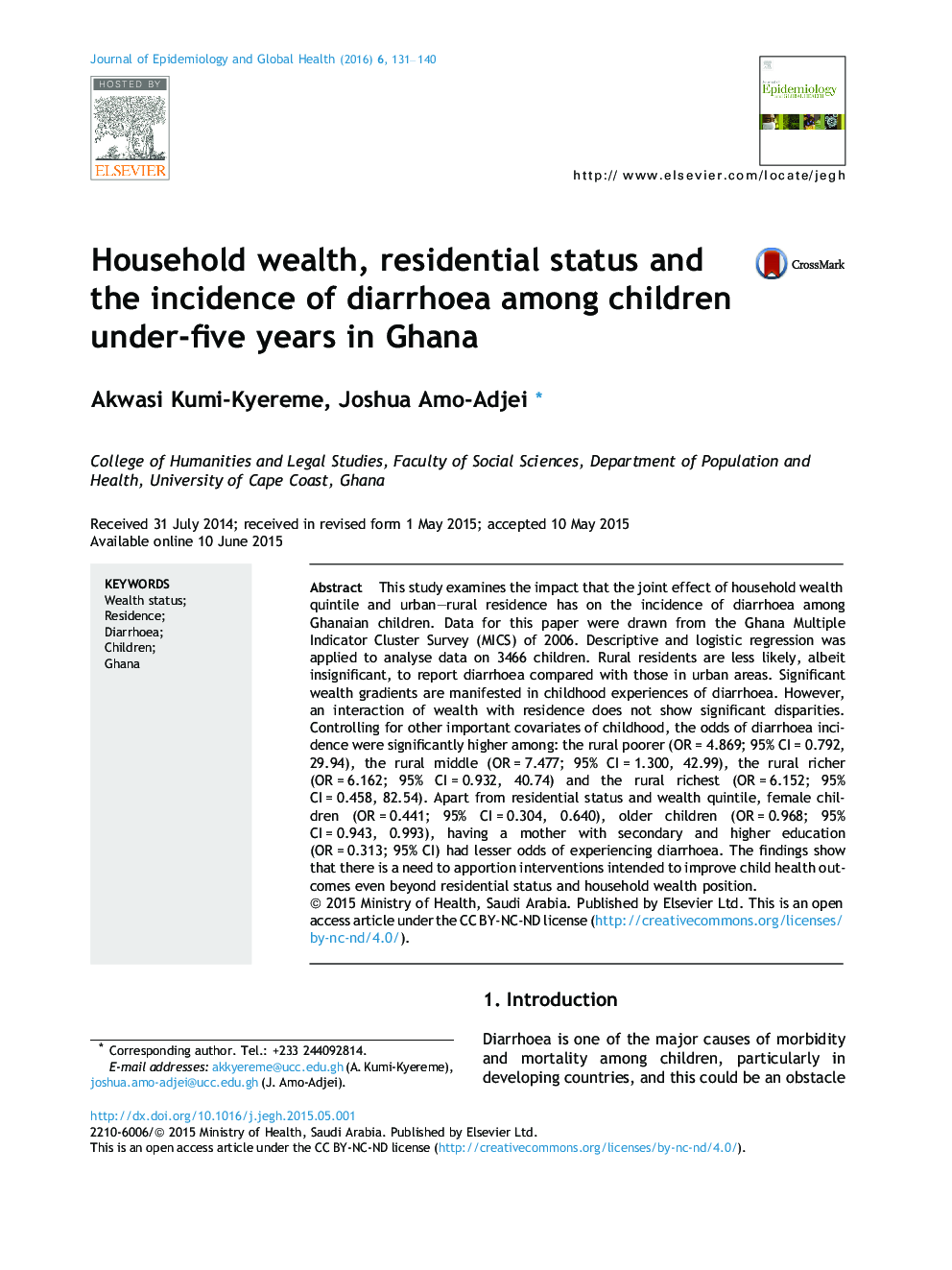| کد مقاله | کد نشریه | سال انتشار | مقاله انگلیسی | نسخه تمام متن |
|---|---|---|---|---|
| 3327430 | 1407599 | 2016 | 10 صفحه PDF | دانلود رایگان |
This study examines the impact that the joint effect of household wealth quintile and urban–rural residence has on the incidence of diarrhoea among Ghanaian children. Data for this paper were drawn from the Ghana Multiple Indicator Cluster Survey (MICS) of 2006. Descriptive and logistic regression was applied to analyse data on 3466 children. Rural residents are less likely, albeit insignificant, to report diarrhoea compared with those in urban areas. Significant wealth gradients are manifested in childhood experiences of diarrhoea. However, an interaction of wealth with residence does not show significant disparities. Controlling for other important covariates of childhood, the odds of diarrhoea incidence were significantly higher among: the rural poorer (OR = 4.869; 95% CI = 0.792, 29.94), the rural middle (OR = 7.477; 95% CI = 1.300, 42.99), the rural richer (OR = 6.162; 95% CI = 0.932, 40.74) and the rural richest (OR = 6.152; 95% CI = 0.458, 82.54). Apart from residential status and wealth quintile, female children (OR = 0.441; 95% CI = 0.304, 0.640), older children (OR = 0.968; 95% CI = 0.943, 0.993), having a mother with secondary and higher education (OR = 0.313; 95% CI) had lesser odds of experiencing diarrhoea. The findings show that there is a need to apportion interventions intended to improve child health outcomes even beyond residential status and household wealth position.
Journal: Journal of Epidemiology and Global Health - Volume 6, Issue 3, September 2016, Pages 131–140
